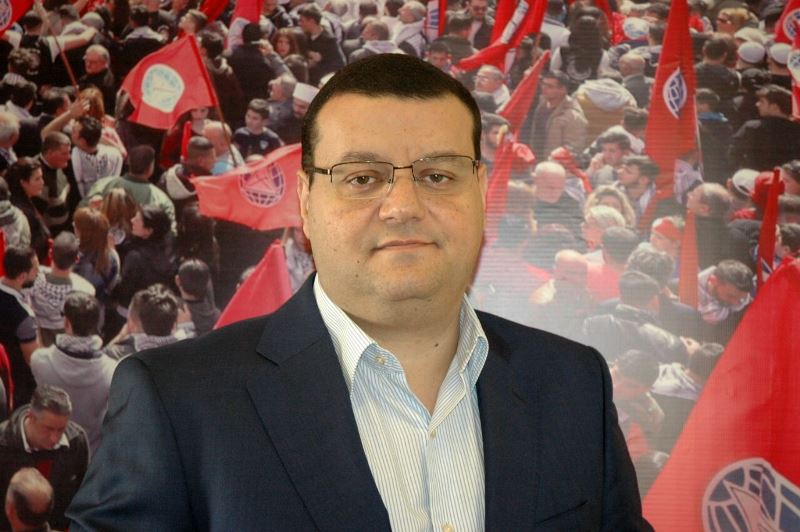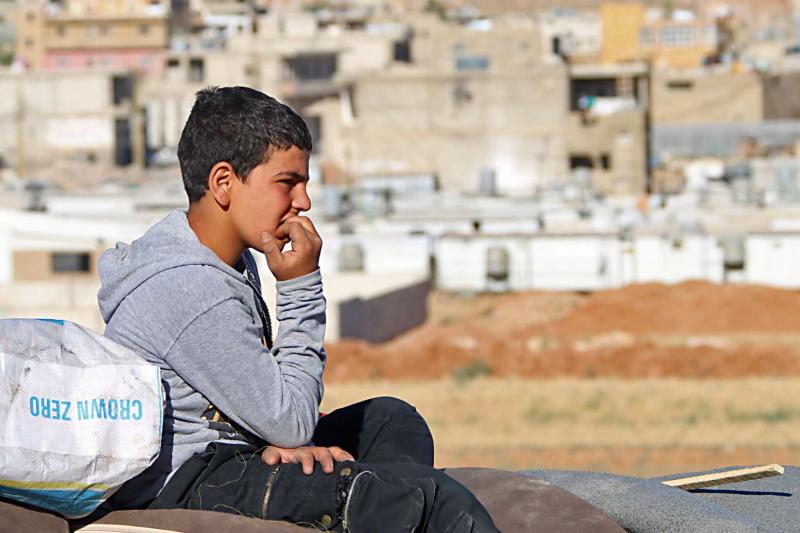Refugee crisis in Lebanon: Collision with the international community
Rami Rayess / The Arab Weekly
15 يوليو 2018

Lebanon’s economy has been under enormous pressure because of the influx of Syrian refugees. An estimated 1.5 million people have fled Syria since 2011 when a peaceful revolution turned into widespread armed conflict. In addition to Lebanon, Jordan and Turkey received refugees numbering in the millions.
The bitter political dispute in Lebanon regarding the refugees’ future began with the 2016 election of Michel Aoun as president. His party, the Free Patriotic Movement, has consistently attacked the refugees’ presence in Lebanon. Just a few weeks ago, caretaker Foreign Minister Gebran Bassil proclaimed that, because of the refugees, the Lebanese economy was on the verge of collapse.
Such assertions didn’t go unchallenged. Progressive Socialist Party (PSP) Chairman Walid Jumblatt said: “Enough fooling the people that the Lebanese economy is on the verge of collapse because of the Syrians. Stop that cheap, racist [talk].”
There are fears that racist speech against the refugees increases animosity among the Lebanese, who are trying to deal with an economic crisis caused by corruption and political stagnation.
Aoun, who pledged to combat corruption, failed to initiate policies to do that. Rather, he provided cover for more suspicious dealings, not least some connected with Lebanon’s power production facilities, widely supposed to be riddled with corruption.
There has been heated debate whether Bassil’s policies, especially with international agencies, will fail to lead to returning refugees to Syria. Any dispute with the international community will aggravate issues, PSP said in a position taken after Bassil’s actions with international agencies. There are certain international laws that Lebanon should abide by regarding the safe return of refugees, PSP said.
The Lebanese General Security agency has been planning for the return of Syrian refugees and repatriated several hundred. However, it was not certain whether those refugees had returned willingly although media reports, including interviews with returnees, conveyed their readiness and enthusiasm to go home.
Khaled Kabbara, spokesman for the UN High Commissioner for Refugees (UNHCR) in Lebanon, said: “Over the decades,
UNHCR has helped some 40 million refugees return home to different countries in the world and some returned before conditions on the ground allowed UNHCR to organise the return. The goal is always to find sustainable solutions to the temporary situation of a refugee. In the context of Lebanon, the solutions pursued are repatriation in line with international standards and resettlement to third countries.”
Kabbara denied allegations that the United Nations had been attempting to settle Syrian refugees in Lebanon.
“UNHCR has consistently reaffirmed that it respects the government of Lebanon’s policy that integration is not an option for refugees in Lebanon and recognised that the stay of refugees is temporary,” he said. “This was committed to in a number of international texts and, most recently, the partnership paper prepared jointly by Lebanon and its international partners for the Brussels II Conference.”
“UNHCR was indeed notified by the general security of these returns,” Kabbara added, yet he admitted that UNHCR played no role in carrying them out.

“UNHCR has always been working with the Lebanese government and its authorities to help refugees and the Lebanese people deal with the enormous challenges resulting from the Syrian crisis and will continue doing so,” Kabbara said of relations between UNHCR and the Lebanese Ministry of Foreign Affairs, which had become strained to the point that the ministry declined to renew UNHCR staff members’ Beirut residencies.
The refugee crisis is undoubtedly one of the most pressing issues facing the Lebanese government. It needs to be addressed immediately. However, if the international community fails to fully support the Lebanese government, it risks Lebanon taking arbitrary action that will ill serve both the refugees and themselves.
 عن أمل جنبلاط المتجدد: لبنان يستحق النضال
عن أمل جنبلاط المتجدد: لبنان يستحق النضال
 صحافيون أم عرّافون!
صحافيون أم عرّافون!
 ماذا يجري داخل أروقة بيت الكتائب المركزي؟
ماذا يجري داخل أروقة بيت الكتائب المركزي؟


 عن الخرائط التي تُرسم والإتفاقات التي تتساقط!
عن الخرائط التي تُرسم والإتفاقات التي تتساقط!
 “الإنحراف في الحياة”/ بقلم كمال جنبلاط
“الإنحراف في الحياة”/ بقلم كمال جنبلاط
 هاشتاغ #صار_الوقت يحل أولاً في حلقة جنبلاط
هاشتاغ #صار_الوقت يحل أولاً في حلقة جنبلاط
 طاولة نقاش عن أزمة الصحافة في جامعة AUST
طاولة نقاش عن أزمة الصحافة في جامعة AUST
 عبدالله: ليظهر لنا وزير مكافحة الفساد حرصه في صفقات البواخر والفيول
عبدالله: ليظهر لنا وزير مكافحة الفساد حرصه في صفقات البواخر والفيول
 عبدالله: غريب أمر وزارة مكافحة الفساد!
عبدالله: غريب أمر وزارة مكافحة الفساد!

 Comment to Uri Avnery: How Sad What Is Looming Ahead
Comment to Uri Avnery: How Sad What Is Looming Ahead
 “Not Enough!”
“Not Enough!”
 … لمن لم يقرأ يوسف البعيني/ بقلم وسام شيّا
… لمن لم يقرأ يوسف البعيني/ بقلم وسام شيّا
 كمال جنبلاط في مولده الأول بعد المائة: تعاليمه وأفكاره ما زالت الحلّ/بقلم عزيز المتني
كمال جنبلاط في مولده الأول بعد المائة: تعاليمه وأفكاره ما زالت الحلّ/بقلم عزيز المتني
 رئيس حزب/ وليس (… سابقاً)/ بقلم د. خليل احمد خليل
رئيس حزب/ وليس (… سابقاً)/ بقلم د. خليل احمد خليل
 التوازن السياسي في لبنان
التوازن السياسي في لبنان
 لبنان… مشاريع انقلابية مؤجلة
لبنان… مشاريع انقلابية مؤجلة
 جنبلاط وحَمَلة أختام الكاوتشوك
جنبلاط وحَمَلة أختام الكاوتشوك
 Le Liban est un symbole de tolérance
Le Liban est un symbole de tolérance
 Our Automated Future
Our Automated Future
 The True Origins of ISIS
The True Origins of ISIS
 Les Misérables vs. Macron
Les Misérables vs. Macron
 عذراً أيها المعلم/ بقلم مهج شعبان
عذراً أيها المعلم/ بقلم مهج شعبان
 رساله الى المعلم / بقلم ابو عاصم
رساله الى المعلم / بقلم ابو عاصم
 إلى روح القائد والمعلم كمال جنبلاط/ بقلم أنور الدبيسي
إلى روح القائد والمعلم كمال جنبلاط/ بقلم أنور الدبيسي
 أسرار وعناوين الصحف ليوم الجمعة 14 كانون الاول 2018
أسرار وعناوين الصحف ليوم الجمعة 14 كانون الاول 2018














